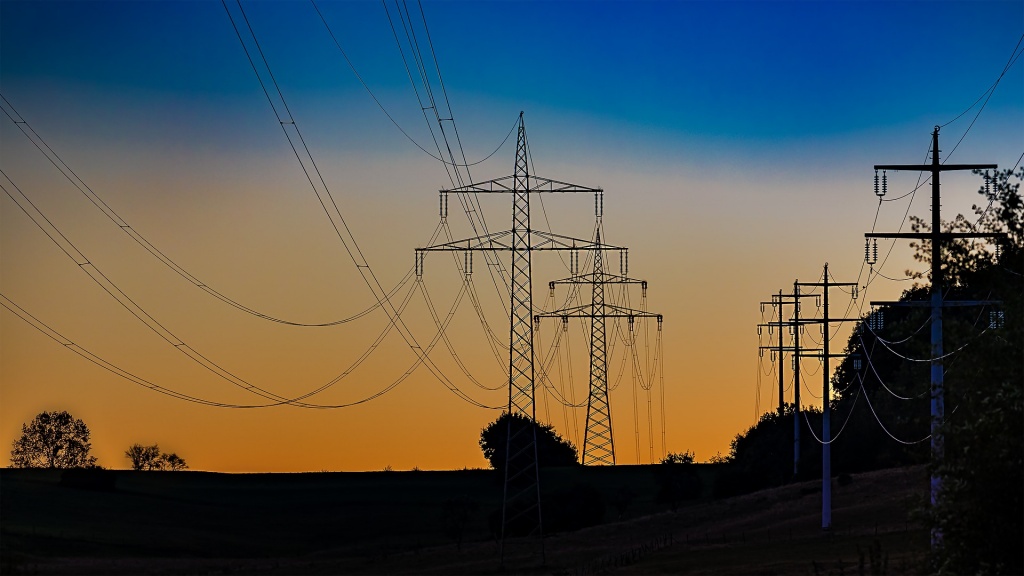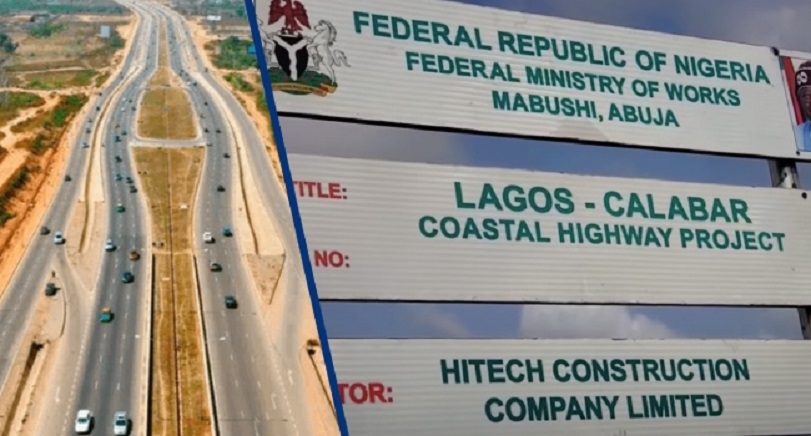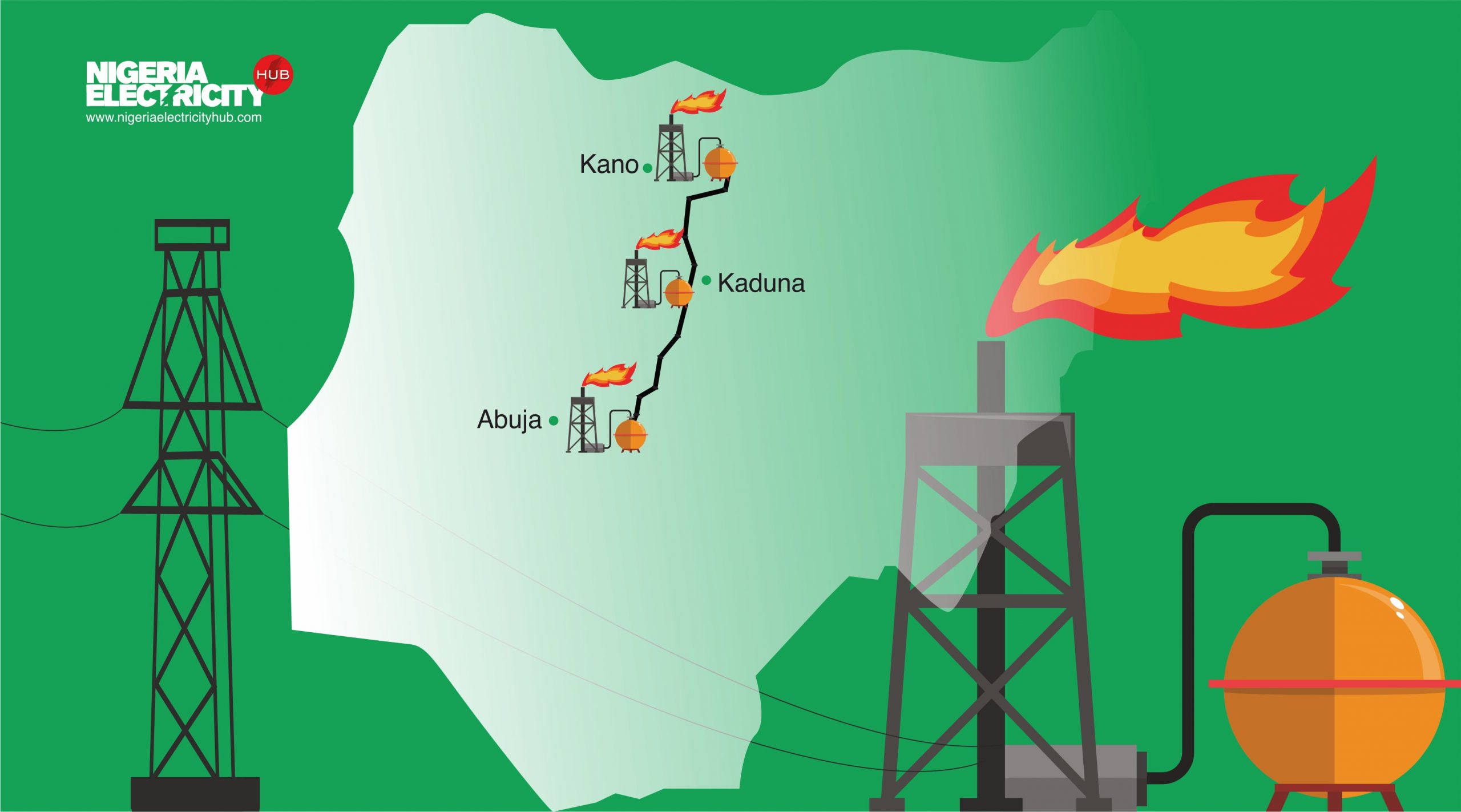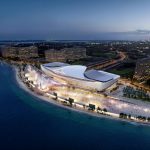General
Social, Economic Activities under Power Lines Dangerous—Ikeja Electric

In a renewed commitment to its high safety standards, Nigeria’s leading electricity distribution company, Ikeja Electric Plc (IE), has cautioned the public under its network against building structures and engaging in social and economic activities under power lines.
The company said the specific clearance/distance which the public must maintain away from a 33/11KV lines is 5.5 meters (20ft) on both sides, while for 132KV lines the distance must be 15 meters (50ft) on both sides and 330KV lines must have a clearance of 25meters (60ft) on both sides.
IE’s Head of Quality, Safety, Health & Environment (QHSE), Engr. Jamiu Badmos, explained that carrying out social and economic activities under power lines exposes people’s lives to danger, leading to the risk of electrocution.
According to him, fatality within the energy sector can be prevented if the public religiously adhere to precautions and avoid activities close to electrical installations.
“As a responsible service provider, we are aware of our obligation to ensure that every resident within our network is kept safe, especially bearing in mind the hazardous nature of electricity so we are using this medium to remind the public that electrical installations are harmful and must be avoided as much as is possible.
“Our appeal to customers to avoid activities under power lines must be taken seriously, especially as the integrity of old cables cannot always be guaranteed” he said.
He revealed that even with the huge resources IE has spent on enlightenment campaigns to sensitize the public on inherent dangers of life-threatening activities, some of the people have remained adamant.
Mr Badmos further called for the intervention of the government and relevant stakeholders in stemming this ugly development by declaring activities under power line as illegal and moving people and markets away from the danger spots to save lives and properties
He added that customers can report cases of illegal structures under power lines, illegal connections and vandalism of equipment through Ikeja Electric customer care help lines numbers: 01-4483900, 0700-0-2255-43, 070-7000-250 or send mail via [email protected].
As a company that places high prioritize to safety in line with its Quality, Health, Safety and Environment (QHSE) policy, Ikeja Electric has consistently championed initiatives that entrenches the culture of safety to ensure no live of staff, contractors or customers is lost through electrocution.
Recently, the company unveiled its Mission Slogan for 2019. The slogan, “Mission Zero-Take Ownership”, is a rallying cry for all stakeholders to take responsibility in ensuring that the network recording zero fatality in 2019. The Four pronged Safety approach unveiled by IE’s safety team, Mission ZERO, focuses on four main areas: Zero Injuries to customers, visitors, contractors and employees; Zero Tolerance of unsafe behaviour and acts; Zero Compromise on Safety generally and Zero Impact on families and communities at large.
General
FG to Deploy 7,000 Forest Guards to Kwara, Sokoto, Others

By Modupe Gbadeyanka
The federal government has concluded plans to immediately deploy the 7,000 forest guards, who completed an intensive three-month training programme.
This information was revealed in a statement issued on Saturday by the Special Assistant on Media to the Minister of Information and National Orientation, Mr Rabiu Ibrahim.
It was disclosed that the forest guards were drawn from seven frontline states comprising Borno, Sokoto, Yobe, Adamawa, Niger, Kwara, and Kebbi States.
The National Security Adviser (NSA), Mr Nuhu Ribadu, was quoted as saying that, “There will be no delay between graduation and deployment. Salaries and allowances will commence immediately, and every certified guard will proceed directly to assigned duty posts.”
The personnel are indigenous to their respective local government areas, enabling them to leverage terrain familiarity and community trust in countering banditry, kidnapping, and the illegal exploitation of forest resources.
The programme is under the Presidential Forest Guards Initiative launched by President Bola Tinubu in May 2025. It represents a coordinated Federal–State security intervention aimed at reclaiming Nigeria’s forests from criminal exploitation.
The scheme is designed to strengthen Nigeria’s internal security architecture by denying terrorists, bandits, kidnappers, and other criminal groups sanctuary within forested and hard-to-reach terrains.
The training was deliberately intensive, structured, and demanding, designed to transform loyal and committed Nigerians into agile, disciplined, and capable field operatives. The curriculum integrated environmental conservation principles with advanced security competencies, ensuring a balanced, professional, and mission-ready force.
Trainees underwent extensive physical and mental conditioning, including endurance exercises, obstacle-crossing drills, and long-range patrol simulations to prepare them for sustained forest operations.
They were also trained in tactical fieldcraft, including movement techniques, enemy-contact drills, ambush response, rescue operations, and coordinated offensive actions—equipping them to deny criminal elements any form of sanctuary within Nigeria’s forest spaces.
Equally central to the programme was a strong emphasis on ethics, legality, and professionalism. The curriculum placed significant focus on human rights, International Humanitarian Law (IHL), gender rights, and the protection of civilians.
Arms handling and use-of-force protocols were strictly regulated in line with an Arms Management Manual jointly agreed upon by all participating agencies.
“These Forest Guards are not just uniformed personnel. They are first responders, community protectors, and a critical layer of Nigeria’s security architecture. They will hold ground, gather intelligence, and support security agencies in reclaiming territories previously overtaken by criminal elements,” Mr Ribadu added.
The training recorded a 98.2 per cent completion rate. A total of 81 trainees were disqualified on disciplinary grounds, while two trainees passed away due to pre-existing medical conditions. All successful participants have been fully certified and cleared for operational service.
General
$1.126bn Financing for Lagos-Calabar Coastal Highway Excites Tinubu

By Modupe Gbadeyanka
The successful closing of about $1.126 billion in financing for the execution of Phase 1, Section 2 of the Lagos–Calabar Coastal Highway has been welcomed by President Bola Tinubu.
A statement issued on Friday by the Special Adviser to the President on Information and Strategy, Mr Bayo Onanuga, disclosed that the funding package was secured by the Federal Ministry of Finance.
Mr Tinubu described this as a landmark because it marks a significant milestone in the delivery of Africa’s most ambitious and transformative infrastructure projects.
He praised the Ministries of Finance and Works and the Debt Management Office (DMO) for working together on the transaction, adding that the federal government will continue to explore creative financing to fund critical projects across the country.
“This is a major achievement, and closing this transaction means the Lagos-Calabar Coastal Highway will continue unimpeded. Our administration will continue to explore available funding opportunities to execute critical economic and priority infrastructural projects across the country,” the President was quoted as saying in the statement.
Phase 1, Section 2 covers approximately 55.7 kilometres, connecting Eleko in Lekki to Ode-Omi, key economic corridors and significantly enhancing national trade efficiency and logistics connectivity.
The successful financing follows the earlier closing of the $747 million financing for Phase 1, Section 1, and demonstrates the scalability and bankability of the Lagos–Calabar Coastal Highway project.
The financing was fully underwritten by First Abu Dhabi Bank (FAB) and Afreximbank, with partial risk mitigation support provided by the Islamic Corporation for the Insurance of Investment and Export Credit (ICIEC), marking ICIEC’s largest transaction since the country’s institutional and regulatory reforms. The structure reflects growing confidence in Nigeria’s reformed investment climate and its capacity to deliver infrastructure.
SkyKapital acted as Lead Financial Advisor, coordinating structuring, lender engagement, and execution. Environmental and Social advisory services were provided by Earth Active (UK), ensuring complete alignment with the IFC Performance Standards, the Equator Principles, and international ESG best practices. Hogan Lovells, as International Counsel, and Templars, as Nigerian Legal Counsel, led the legal advisory services.
Describing the transaction as a “defining moment in Nigeria’s infrastructure journey,” the Minister of Finance and Coordinating Minister of the Economy, Mr Wale Edun, said the fund will be deployed responsibly and judiciously to deliver on the project within timelines.
“The signing on December 19, 2025, of $1.126 billion financing for Phase one — section two of the Lagos-Calabar Coastal road marks a defining moment in Nigeria’s infrastructure journey, following the successful closing of the $747 million financing for Phase one section one on July 9, 2025.
“Collectively, these landmark transactions firmly establish the Lagos-Calabar Coastal Highway as one of the defining flagship projects of President Bola Tinubu’s Renewed Hope agenda, embodying the administration’s commitment to bold, transformational infrastructure.
“This financing is particularly notable as it represents, for the first time, a truly underwritten transaction of this magnitude for a Nigerian road infrastructure project. The facility was fully underwritten by First Abu Dhabi Bank ($626 million) and Afreximbank ($500 million), with partial coverage provided by ICIEC, making it the largest ICIEC-supported transaction since the institution’s creation,” Mr Edun said.
Construction is being executed by Hitech Construction Company Limited, whose rapid on-site progress and early opening of key road sections have earned commendation from lenders for engineering excellence, operational discipline, and execution speed.
In line with the federal government’s commitment to transparency and fiscal discipline, a comprehensive Value-for-Money (VfM) assessment was conducted by the Federal Ministry of Works in coordination with SkyKapital, and the assessment was independently reviewed and confirmed by GIBB.
The successful close of Phase 1, Section 2, represents a clear step-change in market confidence. It demonstrates Nigeria’s ability to move decisively from vision to execution and from reform to delivery.
General
Ekpo Lauds NNPC Over Completion of AKK Mainline Works

By Adedapo Adesanya
The Minister of State for Petroleum Resources (Gas), Mr Ekperikpe Ekpo, has commended the Nigerian National Petroleum Company (NNPC) Limited and its partners for the rapid pace and completion of the mainline welding and associated works of the Ajaokuta–Kaduna–Kano (AKK) gas pipeline ahead of schedule.
The Minister made the remark during a recent inspection of Kilometre Zero of the landmark pipeline project, accompanied by the chief executive officer of the Nigerian state oil company, Mr Bashir Bayo Ojulari, Executive Vice President (Gas, Power, and New Energy) Mr Olalekan Ogunleye, and the managing director of Ajaokuta Steel Company Limited, Mr Nasir Abdulsalam.
“Completing the AKK Mainline ahead of schedule demonstrates the resilience, professionalism, and commitment of the project team,” Mr Ekpo said, describing the milestone as a clear reflection of the Federal Government’s renewed focus on energy infrastructure under President Bola Tinubu’s Renewed Hope Agenda.
The Minister noted that the AKK Gas Pipeline is a strategic national infrastructure poised to drive economic growth across Northern States by supplying natural gas for power generation, supporting gas-based industries, and advancing Compressed Natural Gas (CNG) initiatives.
“This project will enhance industrialisation, create jobs, and strengthen energy security, ushering in a new era of economic opportunities for Nigerians,” he added.
Mr Ekpo concluded by urging all stakeholders to maintain momentum, noting that the AKK Pipeline’s operationalisation will catalyze industrialisation, employment, and inclusive economic growth, aligning with the Federal Government’s broader strategic vision.
Speaking at the site, Mr Ojulari linked the project to tangible national development, highlighting Nigeria’s industrial heritage while projecting a resurgence driven by gas as a transition fuel.
“The AKK Pipeline reflects our commitment to timely project delivery and its strategic importance to national industrialisation and economic security,” he stated.
The inspection tour, according to him, further reinforced the Federal Government and NNPCL’s pledge to ensure the AKK Pipeline’s timely completion, which remains critical to expanding energy access, boosting industrial growth, and supporting shared prosperity across the country.
The Minister and the NNPC management team commended the project workforce for their dedication, emphasizing the role of discipline, collaboration, and technical excellence in achieving the early completion of this landmark project.
The AKK Gas Pipeline, spanning over 614 kilometers, is designed to deliver natural gas to power plants, industries, and CNG facilities, providing a major boost to Nigeria’s energy infrastructure and positioning the country as a regional energy hub.
-

 Feature/OPED6 years ago
Feature/OPED6 years agoDavos was Different this year
-
Travel/Tourism9 years ago
Lagos Seals Western Lodge Hotel In Ikorodu
-

 Showbiz3 years ago
Showbiz3 years agoEstranged Lover Releases Videos of Empress Njamah Bathing
-

 Banking8 years ago
Banking8 years agoSort Codes of GTBank Branches in Nigeria
-

 Economy3 years ago
Economy3 years agoSubsidy Removal: CNG at N130 Per Litre Cheaper Than Petrol—IPMAN
-

 Banking3 years ago
Banking3 years agoFirst Bank Announces Planned Downtime
-

 Banking3 years ago
Banking3 years agoSort Codes of UBA Branches in Nigeria
-

 Sports3 years ago
Sports3 years agoHighest Paid Nigerian Footballer – How Much Do Nigerian Footballers Earn













